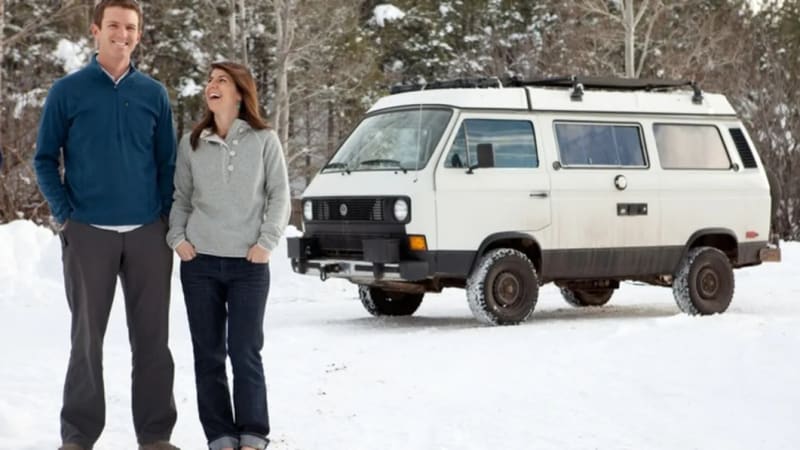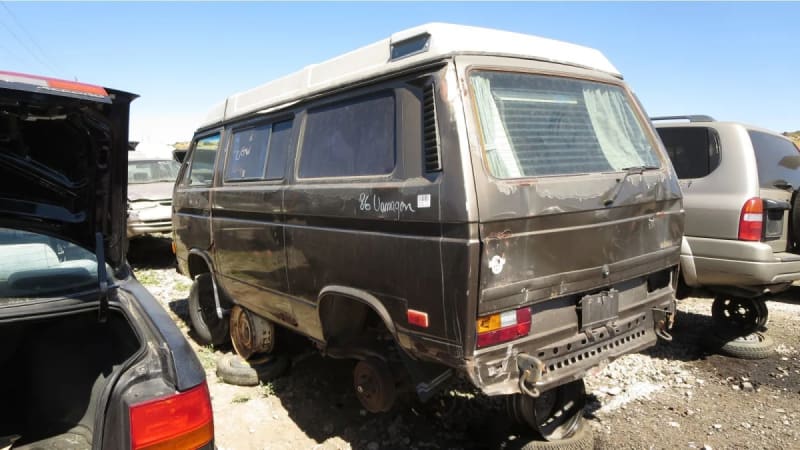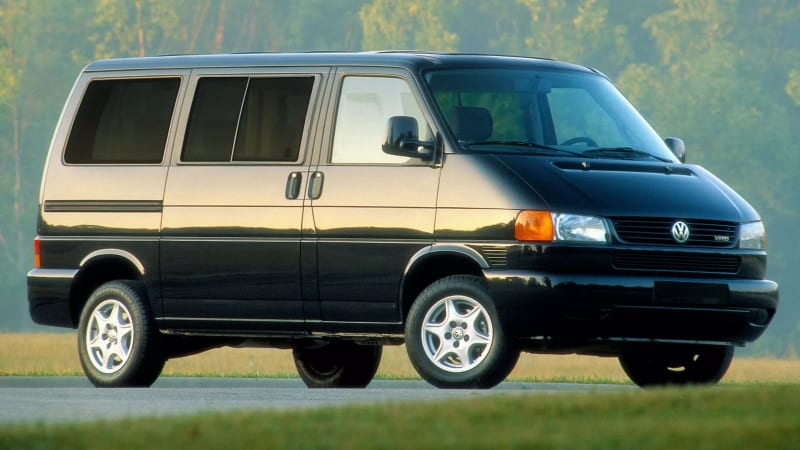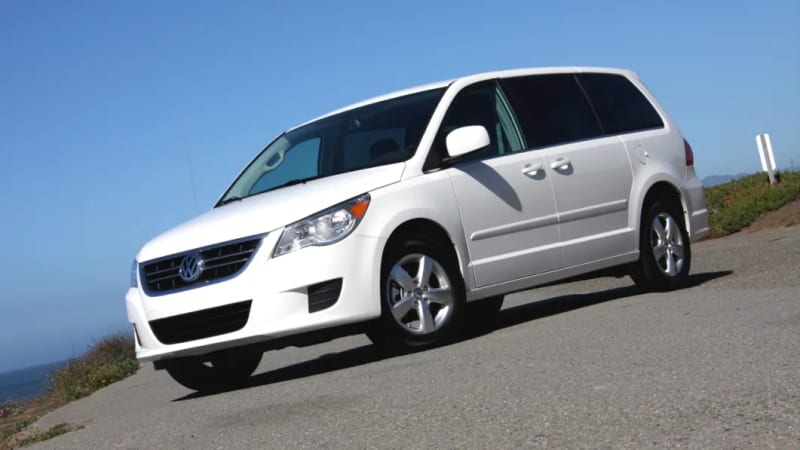We all love cute VW vans, but what about the boring ones?

VW knows cute. Whether it’s cute-cute, a la the Beetle, New Beetle and Kharman Ghia, or ugly-cute (see: Thing), VW has been there and done that. But even when the division of labor between fun and function has been pretty clear (say, Beetle vs. 2-Door Golf), there has rarely been as stark a distinction has the one that developed in Volkswagen’s van lineup. When compared to the likes of the original Type II, some of the company’s passenger vans have the charisma of cold gravy.
With the ID. Buzz and its gasoline equivalent trending back toward sunshine-and-rainbows, we’d like to take a step and remember a few of VW’s homelier homes-on-wheels. While we could plumb the depths of the company’s European commercial back catalog in search of the dull and displeasing, we’d rather stick to the vans you might actually see on the road here in the States. And while they may not be winning any beauty contests, most of these people-movers have their virtues — and their own cult followings.
Transporter T3 Vanagon
Admittedly, the T2 Transporter was a tough act to follow. The T3 (known here in America as the Vanagon) adopted a more angular, modern body style but retained virtually everything else that made the original Transporter unique, including the rear engine placement. The above is a U.S.-spec Syncro (AWD) model, which was a little longer and got a beefier set of brakes.


The Westfalia camper conversion remains popular with the #vanlife crowd, which grew during the pandemic, likely sparing quite a few Vanagons from sharing the fate of the 1986 Wolfsburg Edition shown above right. It may not have been as much of as looker as the model it replaced, but it certainly gets the job done.
Transporter T4 Eurovan

Not a van. Not a minivan. Just … Euro. If previous Transporter variants were weird, the Eurovan was somehow made weirder by Volkswagen’s attempt to present a more conventional, modern cargo vehicle. Gone was the under-floor, rear-mounted, air-cooled engine; the new water-cooled mills resided up front. When it was first introduced, it was simultaneously too small to compete with the typical American cargo vans of the early 1990s and too big to be considered by those shopping for American minivans. VW yanked it from its U.S. lineup for half a decade before reintroducing it with the coveted VR6 engine, but it remained a niche alternative to a segment slowly being cannibalized by the growing popularity of SUVs.

Routan
Nope, not a Transporter! Not even a VW. The Routan was in fact a Chrysler from top to bottom — albeit without Chrysler’s killer Stow ‘n Go seating system. While Volkswagen did have some flexibility in final details of the Routan’s interior, this American-built minivan was badge engineering in the purest sense. If VW’s executives believed being more American would keep its minivan immune from the crossover revolution of the 2000s, the Routan disabused them of that notion. America hasn’t seen a Volkswagen van since. Until now, of course.
Related video:





